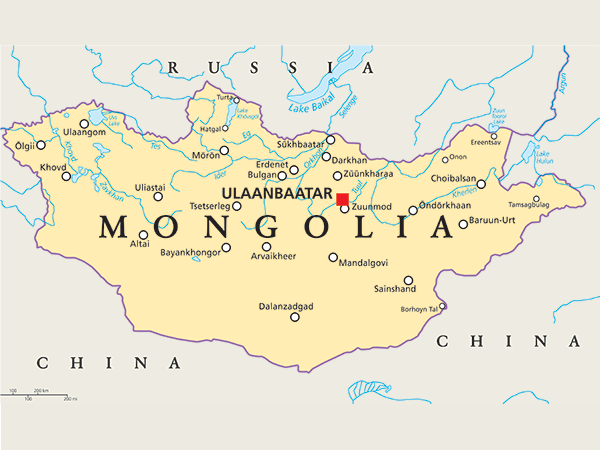Please join the Weatherhead East Asian Institute and the Harriman Institute for a discussion on Mongolia Between Two Giants: Cold War Lessons and Today’s Realities.
This event is online only.
Ambassador Batbayar Tsedendamba will discuss Mongolia’s effort to achieve a delicate balance between its two big neighbors, namely Russia and China, and between the Russian Federation and its so-called “third neighbor” [democratic partner] countries. Since the Russian invasion of Ukraine, Mongolia has endeavored to stay as neutral as possible both between Russia and China, and between Russia and the West. This contrasts with the Cold War period, when Mongolia was faced with intense confrontation between its two giant neighbors: Russia and China. At that time, Mongolia had no other choice but to enter into an alliance with Moscow.
Today Mongolia is again facing the old dilemma about maintaining equidistance from its two giant neighbors: Russia and China. But unlike Cold War era, Mongolia has developed extensive relations with “third neighbor countries”; namely the USA, the EU, Japan and South Korea all have an enormous stake in Mongolia’s future as a democratic and prosperous country. Therefore, Ulaanbaatar has a great dilemma between short-term economic gains from ties with Moscow and Beijing or a long-term commitment to Western democracy and freedom.
Dr. Morris Rossabi will comment on the China angle. Since the 1980s, China has become increasingly involved in Mongolia and is now Mongolia’s largest trading partner and greatest investor. Dr. Rossabi, an expert on Mongolia and Chinese and Inner Asian history, will address the implications of China’s significant economic role in the country.
Dr. Sergey Radchenko, a Cold War historian who has written on Mongolia and the Sino-Soviet split, will address Russia-Mongolia relations at the current juncture.
Speakers
Ambassador Batbayar Tsedendamba, Institute of History and Ethnology
Sergey Radchenko, Johns Hopkins School of Advanced International Studies
Morris Rossabi, Columbia University and Queens College
Moderated by Elizabeth Wishnick, Senior Research Scientist, China and Indo-Pacific Studies Division, CNA, Montclair State University; Senior Research Scholar, WEAI, Columbia University
Biographies
Ambassador Batbayar Tsedendamba is a Principal Researcher at the Institute of History and Ethnology, Ulaanbaatar, Mongolia and President of the Mongolian Association of International Studies. He served as Ambassador to Cuba (2015-2018), Director of the Department of Policy Planning in the Mongolian Foreign Ministry (2013-15), and Political Counselor and Deputy Chief of Mission in the Mongolian Embassy in Beijing (2009-13). He was also a visiting fellow at the Woodrow Wilson International Center for Scholars and Tokyo University of Foreign Studies. He received his Ph.D. in history from the Institute of Far Eastern Studies in Moscow and his B.A. from Leningrad State University. He recently published a book in Mongolian on his country’s Cold War history.
Dr. Sergey Radchenko is the Wilson E. Schmidt Distinguished Professor at the Johns Hopkins School of Advanced International Studies. He was a visiting fellow at the Woodrow Wilson International Center for Scholars and previously taught at Aberystwyth University (Wales) and East China Normal University (Shanghai). Professor Radchenko’s books include Two Suns in the Heavens: the Sino-Soviet Struggle for Supremacy (Wilson Center Press, Stanford, 2009) and Unwanted Visionaries: the Soviet Failure in Asia (Oxford, 2014).
Dr. Morris Rossabi, an historian of China, Central and Inner Asia, is an adjunct professor at Columbia University and a professor of History at Queens College (CUNY). He is the author or editor of 25 books, including Herder to Statesman (Rowman and Littlefield, 2010); The Mongols and Global History (W. W. Norton, 2011); The Mongols: A Very Short Introduction (Oxford University Press, 2012); A History of China (Blackwell, 2013); Modern Mongolia: From Khans to Commissars to Capitalists (University of California Press, 2005); Khubilai Khan: His Life and Times (University of California Press, 1988); and China and Inner Asia (Universe Books, 1975). In 2021, the Mongolian Minister of Foreign Affairs awarded Dr. Rossabi a Certificate of Merit.
This event is sponsored by the Weatherhead East Asian Institute and co-sponsored by the Harriman Institute.


